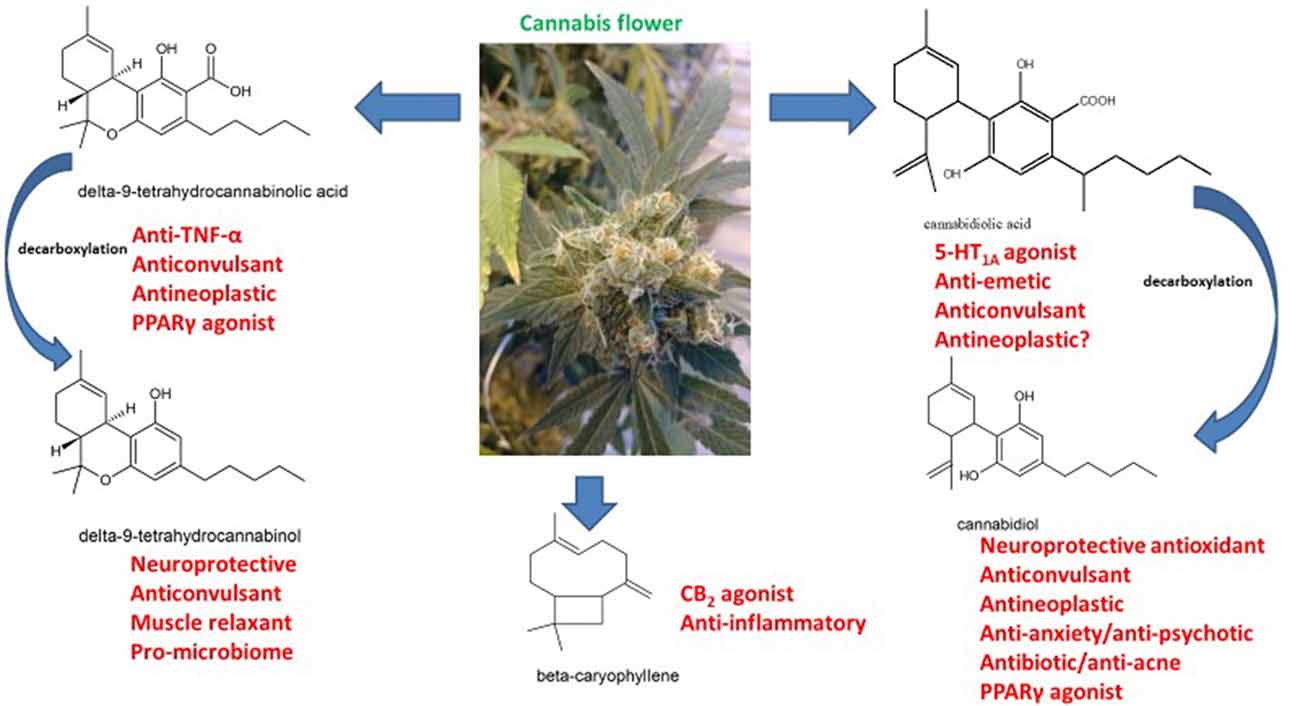Cannabis has long been recognized for its therapeutic potential, with recent research shedding light on its neuroprotective benefits. These benefits have significant implications for treating and preventing neurological disorders, from Alzheimer’s disease and multiple sclerosis to Parkinson’s disease and traumatic brain injury. This detailed guide explores how cannabis can protect the brain, the key components involved, and the potential applications for various neurological conditions.
Understanding Neuroprotection
Neuroprotection refers to the mechanisms and strategies used to protect the nervous system from injury and degeneration. This includes preserving neuronal structure and function and preventing or slowing the progression of neurological diseases. Effective neuroprotective agents can reduce the risk of brain damage and enhance recovery from injuries.

Key Components of Cannabis and Their Neuroprotective Properties
Cannabis contains over 100 cannabinoids, but the two most studied for their neuroprotective effects are THC (tetrahydrocannabinol) and CBD (cannabidiol). These cannabinoids interact with the endocannabinoid system (ECS), which plays a crucial role in regulating various physiological processes, including neuroprotection.
THC (Tetrahydrocannabinol):
Mechanism: THC binds to CB1 receptors in the brain, which are part of the ECS. These receptors are involved in regulating pain, mood, memory, and neuroprotection.
Benefits: THC has been shown to reduce neuronal excitotoxicity, a process that leads to cell damage and death. It also has antioxidant properties that protect brain cells from oxidative stress.
CBD (Cannabidiol):
Mechanism: Unlike THC, CBD does not bind directly to CB1 receptors. Instead, it modulates the ECS by inhibiting the breakdown of endocannabinoids, increasing their levels and enhancing their protective effects.
Benefits: CBD has potent anti-inflammatory and antioxidant properties. It protects against neuronal damage by reducing inflammation and oxidative stress. Additionally, CBD promotes neurogenesis, the growth of new neurons, which is vital for brain health.
Neuroprotective Benefits of Cannabis in Neurological Disorders
Alzheimer’s Disease:
Pathology: Alzheimer’s disease is characterized by the accumulation of amyloid-beta plaques and tau tangles in the brain, leading to neuronal damage and cognitive decline.
Cannabis Benefits: Studies suggest that THC can reduce the production of amyloid-beta plaques and enhance their clearance from the brain. Both THC and CBD have anti-inflammatory properties that mitigate neuroinflammation, a key factor in Alzheimer’s progression.
Parkinson’s Disease:
Pathology: Parkinson’s disease involves the degeneration of dopamine-producing neurons in the brain, leading to motor and non-motor symptoms.
Cannabis Benefits: Cannabinoids can help alleviate motor symptoms such as tremors and rigidity by modulating dopamine levels. Additionally, the neuroprotective effects of CBD may slow the progression of neuronal degeneration.
Multiple Sclerosis (MS):
Pathology: MS is an autoimmune disorder where the immune system attacks the myelin sheath, a protective covering of nerve fibers, causing inflammation and damage.
Cannabis Benefits: Cannabis has been shown to reduce spasticity, pain, and inflammation in MS patients. The neuroprotective properties of cannabinoids can help preserve myelin integrity and prevent further neuronal damage.
Traumatic Brain Injury (TBI):
Pathology: TBI results from a blow or jolt to the head, causing brain damage and leading to long-term cognitive and motor deficits.
Cannabis Benefits: Cannabinoids can reduce brain inflammation and oxidative stress following a TBI. Studies have shown that administering cannabinoids shortly after the injury can improve outcomes and enhance recovery.
Huntington’s Disease:
Pathology: Huntington’s disease is a genetic disorder that causes the progressive breakdown of nerve cells in the brain, affecting movement, cognition, and behavior.
Cannabis Benefits: Research indicates that cannabinoids can reduce the excitotoxicity and oxidative stress associated with Huntington’s disease. THC and CBD have shown promise in alleviating motor symptoms and protecting neuronal function.
Mechanisms of Neuroprotection by Cannabis
Antioxidant Properties:
Cannabinoids neutralize free radicals and reduce oxidative stress, which is a major cause of neuronal damage.
Anti-Inflammatory Effects:
Cannabinoids modulate the immune response and reduce inflammation in the brain, protecting neurons from inflammatory damage.
Excitotoxicity Reduction:
THC and CBD reduce excitotoxicity by modulating glutamate levels, a neurotransmitter that can cause neuronal damage when present in excess.
Neurogenesis Promotion:
CBD promotes the growth of new neurons, which is essential for maintaining cognitive functions and repairing brain damage.
Considerations for Using Cannabis for Neuroprotection
Dosage and Strain Selection:
The optimal dosage and strain of cannabis can vary depending on the condition being treated and the individual’s response. Consulting with a healthcare provider knowledgeable about cannabis therapy is crucial.
Delivery Methods:
Different delivery methods (e.g., inhalation, edibles, tinctures) have varying onset times and durations of effects. The choice of method should be based on the specific needs and preferences of the patient.
Potential Side Effects:
While cannabis has many therapeutic benefits, it can also have side effects such as dizziness, dry mouth, and altered cognition. Monitoring and adjusting the dosage can help minimize these effects.
Legal and Regulatory Considerations:
The legality of cannabis varies by region. It is important to understand the local laws and regulations regarding medical cannabis use.
Conclusion
Cannabis holds significant promise as a neuroprotective agent, offering potential benefits for a range of neurological disorders. By reducing inflammation, oxidative stress, and excitotoxicity, cannabinoids can protect neurons and support brain health. As research continues to expand our understanding of cannabis’s neuroprotective properties, it is likely to become an increasingly important tool in the management and treatment of neurological diseases.
At BabaGanja.com, we are committed to providing comprehensive information and resources on the therapeutic uses of cannabis. Explore our website for more guides, research updates, and expert advice on harnessing the power of cannabis for better health and well-being.



